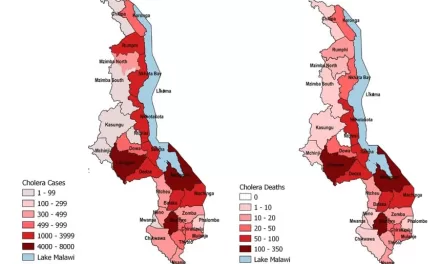A recent study presented at the Society for Maternal-Fetal Medicine (SMFM) 2025 Annual Pregnancy Meeting has linked breastfeeding to lower long-term cardiovascular risk, with the effect being more pronounced in individuals who had gestational diabetes.
Dr. Christine Field, a Maternal-Fetal Medicine Fellow at The Ohio State University College of Medicine, highlighted the findings, emphasizing that individuals with prior gestational diabetes are less likely to exclusively breastfeed at hospital discharge and tend to breastfeed for shorter durations. She stated, “These results highlight the potential value of postpartum cardiovascular risk assessment that integrates both modifiable behavioral risk factors, such as breastfeeding, and risk-enhancing adverse pregnancy outcomes, such as gestational diabetes.”
Potential Cardiovascular Benefits of Breastfeeding
Dr. Diana S. Wolfe, obstetric director of the Maternal-Fetal Medicine Cardiology Joint Program at Montefiore Einstein, noted that breastfeeding is associated with weight loss, increased metabolism, and physical activity, which could contribute to a reduced cardiovascular risk. However, she cautioned against drawing overly strong conclusions without further investigation into the biological mechanisms behind this association.
Dr. Melissa Wong, an assistant professor at Cedars-Sinai in Los Angeles, echoed Wolfe’s caution, adding that factors such as socioeconomic status, education, and health literacy also play a role in both breastfeeding feasibility and cardiovascular health outcomes.
Study Findings and Methodology
The study was a secondary analysis of the Hyperglycemia and Adverse Pregnancy Outcome (HAPO) Follow-Up Study conducted between 2013 and 2016. Researchers examined long-term cardiometabolic health in women who delivered at full term without pregestational diabetes. The study included 4,540 mothers with a median age of 30 years and a median BMI of 26.6.
The researchers found that women who breastfed had lower estimated 10-year and 30-year cardiovascular risks compared to those who did not. Specifically, those who breastfed had an approximately 5% reduction in estimated cardiovascular risk across the whole study population. However, among individuals with gestational diabetes, the risk reduction was even greater, with an estimated 15% reduction in cardiovascular risk associated with breastfeeding.
Limitations and Future Research
Despite its promising findings, the study had some limitations. It did not account for breastfeeding duration or whether mothers exclusively breastfed or supplemented with formula. Additionally, it excluded women with preterm births or pregestational diabetes, populations that may face even greater risks regarding breastfeeding and cardiovascular disease.
Furthermore, as the original HAPO study blinded participants to their gestational diabetes status, those diagnosed did not receive specific treatment. This raises questions about how the management of gestational diabetes might influence breastfeeding and future cardiovascular risk.
Dr. Wolfe emphasized the importance of patient education and support to promote breastfeeding, particularly among individuals at higher risk. “Patient-centered programs and community health workers can facilitate opportunities for postpartum individuals to breastfeed and potentially improve long-term cardiovascular outcomes,” she said.
The study was funded by the National Institute of Diabetes and Digestive and Kidney Diseases. Drs. Field, Wolfe, and Wong disclosed no conflicts of interest.
Disclaimer
This article is for informational purposes only and does not constitute medical advice. Individuals should consult healthcare professionals before making any medical or lifestyle changes based on this research.












